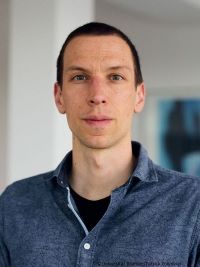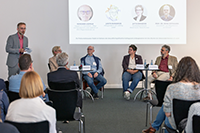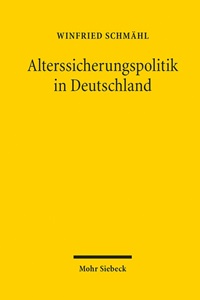
Das vor 20 Jahren eingeführte Mammographie-Screening-Programm für Frauen von 50 bis 69 Jahren trägt deutlich zur Verringerung der Brustkrebssterblichkeit bei. Das ist das Ergebnis einer Studie, die unter Beteiligung des SOCIUM Forschungszentrum Ungleichheit und Sozialpolitik (SOCIUM) durchgeführt und am 9. Juli 2025 bei einer Veranstaltung mit Bundesumweltminister Carsten Schneider und Bundesgesundheitsministerin Nina Warken in Berlin vorgestellt wurde. Unter den Frauen, die an dem Mammographie-Screening-Programm teilnahmen, gingen die Brustkrebstodesfälle demnach zwischen 20 und 30 Prozent zurück. Für die Untersuchung wurden Daten aus den Jahren 2009 bis 2018 ausgewertet.
Teilnahme senkt Sterberisiko
Brustkrebs ist die häufigste Krebserkrankung bei Frauen. Jede achte Frau in Deutschland erkrankt im Laufe ihres Lebens daran. Für 18.500 Frauen pro Jahr endet die Erkrankung tödlich. Ältere und nur eingeschränkt auf Deutschland übertragbare internationale Studien ließen bereits erwarten, dass sich mit einem Mammographie-Screening-Programm für Frauen von 50 bis 69 Jahren etwa 25 Prozent der Brustkrebstodesfälle vermeiden lassen.
Die vom Bundesamt für Strahlenschutz koordinierte und unter Leitung der Universität Münster zusammen mit dem Landeskrebsregister Nordrhein-Westfalen, dem Leibniz-Institut für Präventionsforschung und Epidemiologie – BIPS (BIPS) und dem SOCIUM durchgeführte Studie untersuchte für das deutsche Mammographie-Screening-Programm, wie stark es die Brustkrebssterblichkeit tatsächlich verringert. Die Ergebnisse bestätigen die internationalen Erkenntnisse: Von den Frauen, die am Mammographie-Screening-Programm teilnahmen, starben im Vergleich zu den Nicht-Teilnehmerinnen 20 bis 30 Prozent weniger an Brustkrebs. Es konnte also etwa jeder vierte Todesfall durch eine frühzeitige Diagnose vermieden werden. Mögliche Nachteile des Mammographie-Screenings, wie Überdiagnosen und das sehr geringe zusätzliche Krebsrisiko, das mit der Anwendung von Röntgenstrahlung bei der Untersuchung verbunden ist, waren nicht Gegenstand der Studie, sondern wurden bereits anderweitig bewertet.
Das Mammographie-Screening-Programm
Das Mammographie-Screening-Programm ist das erste systematische Krebsfrüherkennungsprogramm nach europäischen Qualitätsstandards in Deutschland und das größte Screening-Programm in Europa. Für Frauen von 50 bis 69 Jahren wurde es ab 2005 schrittweise eingeführt. Seit 2009 steht es flächendeckend zur Verfügung. Jedes Jahr nutzt etwa die Hälfte der eingeladenen Frauen das Programm. Im Juli 2024 wurde das Screening-Programm auf Frauen bis 75 Jahre ausgeweitet.
Anspruchsberechtigte Frauen erhalten alle zwei Jahre eine schriftliche Einladung zur Mammographie. Die Teilnahme ist freiwillig. Wer sich dafür entscheidet, kann die Untersuchung in einer von 95 zertifizierten Screening-Einheiten durchführen lassen. Geschulte Fachkräfte, moderne Technik und eine Begutachtung der Röntgenbilder durch zwei spezialisierte, unabhängig voneinander urteilende Ärzt*innen sorgen dabei für besonders zuverlässige Ergebnisse.
Das Mammographie-Screening-Programm richtet sich an symptomfreie Frauen. Frauen mit Symptomen oder mit vorangegangener Brustkrebserkrankung erhalten die nötigen Untersuchungen im Rahmen der regulären Krankenversorgung.
Früherkennung mit Röntgenstrahlung nur mit Zulassung
An augenscheinlich gesunden, also symptomfreien Menschen sind Röntgenuntersuchungen zur Früherkennung von Krankheiten nur dann erlaubt, wenn die Untersuchung durch das Bundesumweltministerium zugelassen wurde. Voraussetzung ist, dass der Nutzen das mit der Untersuchung verbundene Strahlenrisiko deutlich übersteigt. Für ein Mammographie-Screening-Programm für Frauen von 50 bis 69 Jahren fiel diese Bewertung Anfang der 2000er Jahre positiv aus. Seit 2018 ist das Bundesamt für Strahlenschutz für die Nutzen-Risiko-Bewertung zuständig.
Über die Studie
Die Wissenschaftler*innen verfolgten zwei parallele Untersuchungsansätze: Im sogenannten kassenbasierten Ansatz wurden Abrechnungsdaten von vier gesetzlichen Krankenkassen durch das BIPS sowie die Daten der BARMER durch das SOCIUM ausgewertet. Dadurch konnten Frauen aus dem gesamten Bundesgebiet in die Studie einbezogen werden. Im sogenannten bevölkerungsbasierten Ansatz analysierte die Universität Münster vollzählige Daten zu allen in Nordrhein-Westfalen lebenden Frauen, die im Untersuchungszeitraum Anspruch zur Teilnahme am Mammographie-Screening-Programm hatten. Dafür wurden Informationen des Landeskrebsregisters Nordrhein-Westfalen sowie des dortigen statistischen Landesamtes (IT.NRW) genutzt. Insgesamt zeigten die Ergebnisse beider Ansätze mit hoher Aussagekraft, dass die Brustkrebssterblichkeit durch das Screening um 20 bis 30 Prozent reduziert wird.
Die aus vier aufeinanderfolgenden Forschungsprojekten bestehende Studie wurde vom Bundesamt für Strahlenschutz fachlich und administrativ koordiniert. Die eigentlichen Forschungsarbeiten führte die Universität Münster zusammen mit dem Landeskrebsregister Nordrhein-Westfalen, BIPS und SOCIUM durch.
Das Bundesumweltministerium, das Bundesgesundheitsministerium sowie die Kooperationsgemeinschaft Mammographie trugen gemeinsam die Kosten von rund 10 Millionen Euro. Über die grundsätzlichen Inhalte des Forschungsprojektes entschied ein Steuerungsgremium, das von einem unabhängigen Wissenschaftlichen Beirat beraten wurde.
Der umfangreiche Ergebnisbericht (500 Seiten) mit detaillierter Darstellung der Methoden und Ergebnisse der Studie „Evaluation der Brustkrebsmortalität im deutschen Mammographie-Screening-Programm“ steht im Digitalen Online Repositorium und Informations-System DORIS unter der URN https://nbn-resolving.org/urn:nbn:de:0221-2025062052653 zur Verfügung.
Link zur Machbarkeitsstudie
https://www.socium.uni-bremen.de/projekte/?proj=447
Link zur Hauptstudie I
https://www.socium.uni-bremen.de/projekte/?proj=588
Link zur Hauptstudie II
https://www.socium.uni-bremen.de/projekte/?proj=665
Link zum Generalunternehmer
https://www.medizin.uni-muenster.de/epi/forschung/projekte/zebra-msp/
Contact:
Prof. Dr. Heinz Rothgang
SOCIUM Research Center on Inequality and Social Policy
Mary-Somerville-Straße 3
28359 Bremen
Phone: +49 421 218-58557
E-Mail: rothgang@uni-bremen.de
Dr. Jonas Czwikla
SOCIUM Research Center on Inequality and Social Policy
Mary-Somerville-Straße 3
28359 Bremen
Phone: +49 421 218-58633
E-Mail: czwikla@uni-bremen.de













